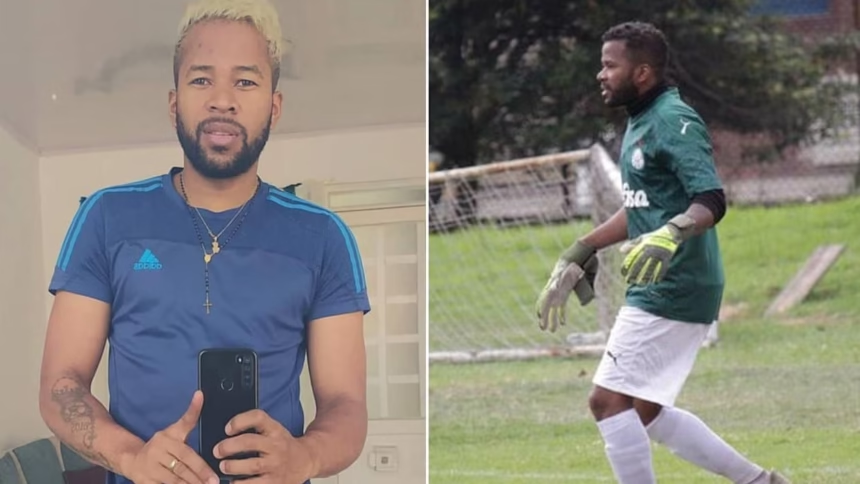The Trump administration recently deported a professional Venezuelan soccer player to El Salvador after misinterpreting his tattoo as a gang affiliation symbol, according to his attorney.
In reality, the tattoo was simply a tribute to his beloved team, Real Madrid.
Jerce Reyes Barrios, a Venezuelan national, fled his home country after participating in protests against the authoritarian government of Nicolás Maduro.
He entered the U.S. legally and applied for asylum. However, his tattoo—a crown over a soccer ball with the word “Dios”—was viewed by authorities as evidence of affiliation with the Tren de Aragua gang.
His attorney, Linette Tobin, refuted this claim, clarifying that the tattoo was inspired by Real Madrid. “DHS alleges that this tattoo proves gang affiliation. In reality, he chose it because it resembles the logo of his favorite football team,” she told HuffPost.
Despite providing documents proving his clean criminal record and multiple testimonies confirming he had no gang ties, Reyes Barrios was placed in a secure detention facility, then transferred to Texas before being deported to El Salvador without warning.
The Trump administration relied on the Alien Enemies Act, a rarely used law, to justify the deportation of hundreds of Venezuelan migrants to El Salvador. This law allows the president to order the arrest and expulsion of individuals deemed “enemies” without a standard judicial process.
Although a federal judge had suspended deportations under this law, flights continued in violation of a verbal injunction ordering their halt. The Trump administration maintains that the Tren de Aragua gang is a terrorist threat linked to the Venezuelan regime, a stance strongly contested by lawyers and human rights advocates.
Reyes Barrios is now among a group of migrants transferred to a Salvadoran prison notorious for its harsh conditions.
In a court filing, the American Civil Liberties Union (ACLU) warned of documented mistreatment and enforced disappearances at the facility. “If the president can designate any group as an enemy under this law, then there is no limit to who can be sent to a Salvadoran prison,” said ACLU attorney Lee Gelernt, as reported by HuffPost.
Another notable case involves a migrant identified by the initials JABV. Spotted by his brother in a video circulating on social media, he had a clean record and was awaiting an asylum hearing. His attorney, Osvaldo E. Caro-Cruz, contested the mistaken identification, emphasizing that his tattoos—a rose, a clock, and a crown with his child’s name—had no connection to any criminal organizations.
While some migrants have won favorable court rulings, others have not been granted the same protections. Several lawyers reported that their clients were abruptly taken to airports and placed on flights to El Salvador, often without prior notice.
Salvadoran President Nayib Bukele, an outspoken Trump supporter, broadcast footage of deported migrants arriving at the country’s prison facilities, openly defying the U.S. judge’s order to stop the deportations. Meanwhile, advocates and family members remain without contact with many of the deported individuals, unaware of their current situation.
Amid growing concerns over these seemingly arbitrary deportations, human rights organizations are demanding a review of the protocols used by the Trump administration. The ACLU and multiple attorneys are calling for the return of deported migrants to the U.S. so they can properly continue their asylum cases.
A spokesperson for the Department of Homeland Security (DHS), Tricia McLaughlin, defended the deportations, stating that intelligence gathered by authorities justified the actions. “We are confident in our findings,” she told HuffPost.
Credit: HuffPost






